Understanding Houston: Leveraging Data for Action
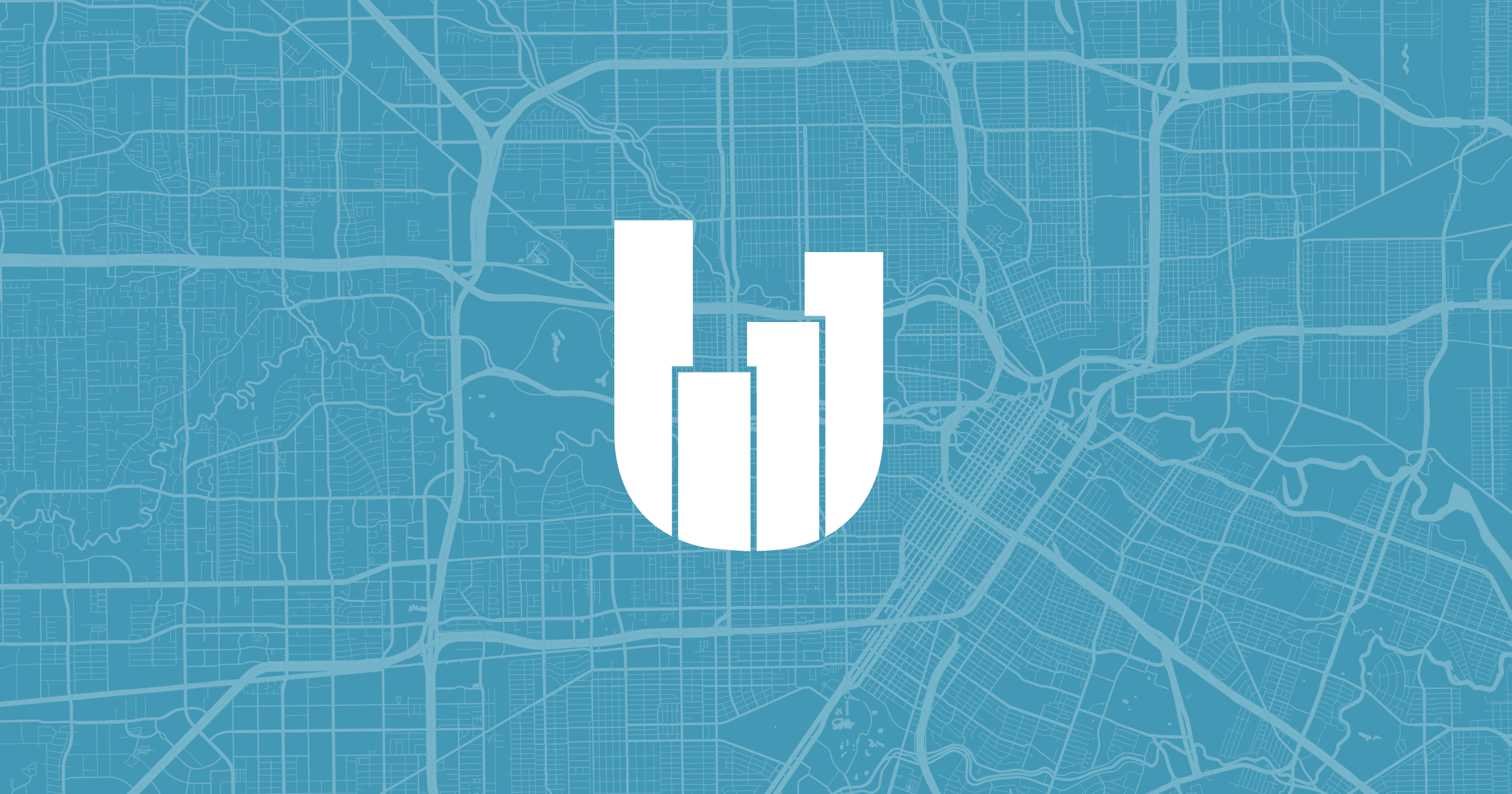
If you are reading this, then you, like many others, likely want to make a positive impact in the Houston area. With a region as large and diverse as Houston, which boasts tens of thousands of nonprofits, there are endless ways to get involved. You could donate your time, talent, or treasure to a nonprofit, bring members of your community together to advocate for change, or even have important conversations with others about the issues facing our region.
But making sense of life in America’s fourth-largest city isn’t always easy.
That’s why in 2019, Greater Houston Community Foundation (Foundation) launched Understanding Houston in partnership with Rice University’s Kinder Institute for Urban Research.
Understanding Houston is a central resource featuring independent research organized to empower people throughout Greater Houston to take informed action—individually and collectively—to build a region that provides everyone with the opportunity to reach their full potential.

If you haven’t already, join the Foundation as we turn data into learning and learning into action.
Why Understanding Houston?
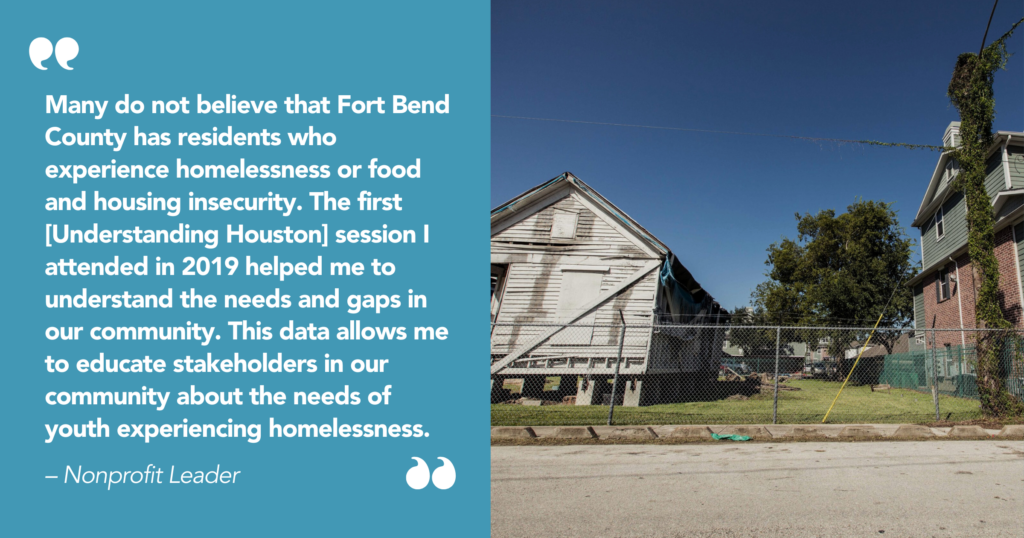
Until the launch of Understanding Houston, the Houston region was one of the few major metropolitan areas in America without an ongoing community indicators project. This is important to note for a couple of reasons:
- Community indicator initiatives advance collective action. The Community Indicators Consortium and the National Neighborhood Indicators Partnership advocate for the importance of indicator initiatives, like Understanding Houston, to identify critical needs and motivate collaborative, consensus-driven change.
- Community leaders wanted and needed access to quality-of-life data trends. A 2017 survey administered by Greater Houston Community Foundation to regional nonprofits, civic leaders, and foundation partners found that 75% of respondents stated that their “organization needed access to a single data source” around quality-of-life issues in Houston.
Additional engagement through focus groups facilitated by the Foundation revealed tremendous support for a regional data indicators initiative. Focus group members expressed the need for a “one-stop shop” that provides credible data trends over time on critical issues that is comprehensive yet still digestible for a non-academic audience. This community need, along with the Foundation’s commitment to cross-sector convening and collaboration, ultimately spurred the creation of Understanding Houston.
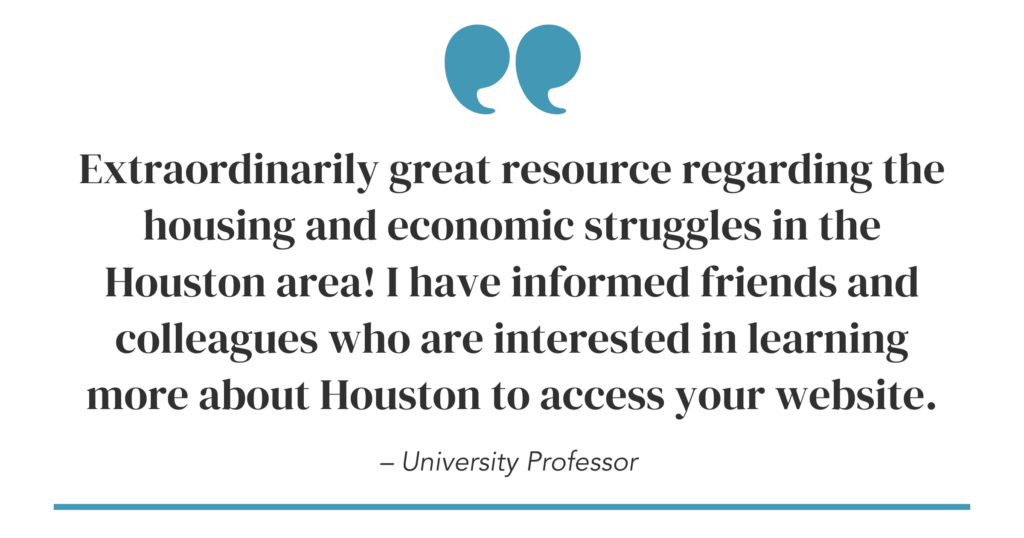
Measuring what matters to do what matters
UnderstandingHouston.org provides data trends on the indicators that matter the most to improving the quality of life for residents of Harris, Fort Bend, and Montgomery counties. But with so many indicators to choose from, how did Understanding Houston select the most important data points for Houston?

The data indicators were selected in partnership with Kinder Institute for Urban Research, the Understanding Houston Advisory Committee, and hundreds of community leaders through a series of listening sessions in Fort Bend, Harris, and Montgomery counties. These engagements allowed the combination of research, best-practices, and community voice to shape the scope and design of the Understanding Houston initiative.

Understanding Houston has provided valuable insights into our region for nearly five years. Through this initiative, much has been learned about Houston’s three-county region.
- More efforts are needed to build trust amongst residents and boost civic engagement. Less than half of Harris County residents think “most people can be trusted,” and while voter turnout hit record numbers in the 2020 presidential election, our region and state still lag behind U.S. voter participation rates.
- Our diversity is a point of pride. Fort Bend County’s demographic composition is about evenly split among the four largest racial/ethnic categories, but we still see disparities across income, homeownership, educational attainment, and health.
- Despite being home to the world’s largest medical center, our residents’ physical and mental health have worsened. Montgomery County has 1 in 3 residents living with obesity and the highest suicide rate in the region.
- Houstonians are struggling. The rising cost of housing increasingly burdens renters, incomes have not matched inflation, and more than 1 out of 3 households in the region cannot afford their basic needs despite working full-time.
Understanding Houston has shared this type of data—and more—far and wide. As of September 2024, over 250,000 users have visited the understandinghouston.org website. The Understanding Houston team has also provided data briefings to over 3,800 individuals. However, Understanding Houston was designed to go beyond data collection and analysis. No doubt the data is invaluable, but the true value lies in what we do with it—Understanding Houston’s true purpose is to drive actionable insights. We’re measuring what matters to do what matters.
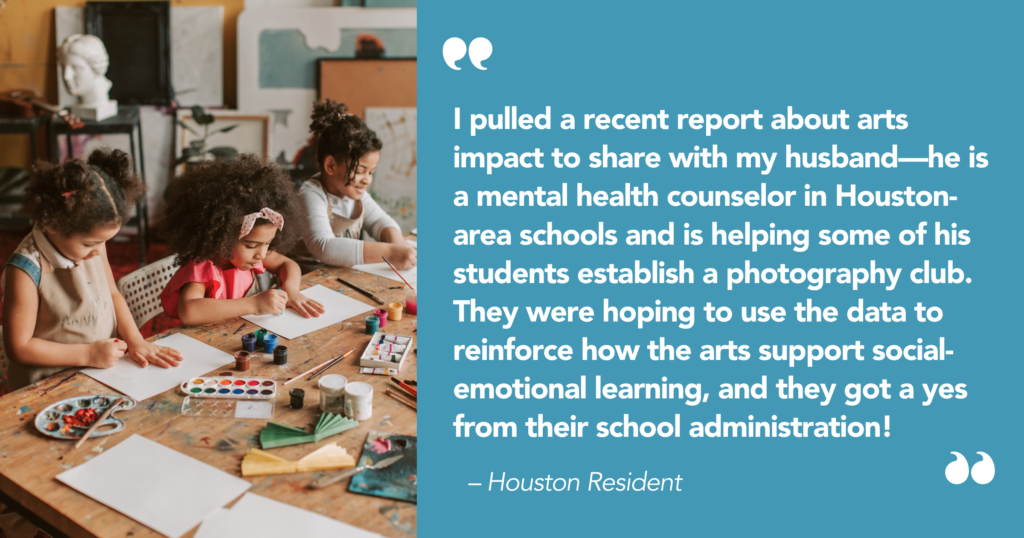
Doing what matters by measuring what matters
So, how does Understanding Houston help transform data into action?
Hundreds of community leaders have shared that they have used Understanding Houston to make others aware of community needs, inform their own philanthropic investments, set organizational and programmatic strategies, bolster grant submissions, and ultimately feel confident advocating for the causes they care about. Just some of the impact stories collected have been disbursed throughout this article.
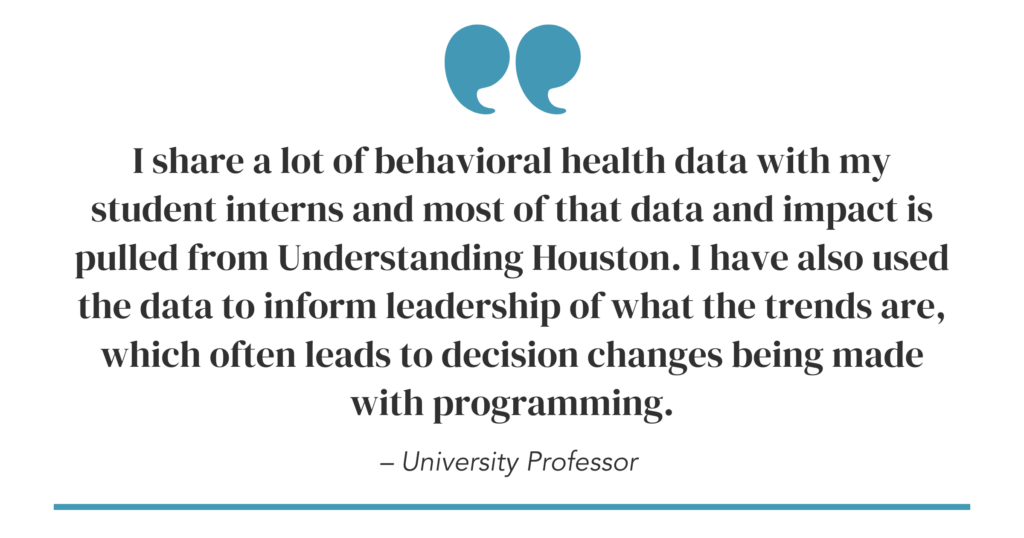
Testimonials like these reinforce that Understanding Houston is serving its intended purpose—to be a comprehensive and reputable data resource that anyone can use to learn and act to improve the quality of life in Houston. Data can be a powerful tool to create shared knowledge that spurs meaningful conversations supporting collective action.
Talking the talk while walking the walk
Greater Houston Community Foundation has also leveraged Understanding Houston to inform its own learnings, conversations, and actions, which has culminated in the Community Impact Fund (Fund).
This Fund allows the Foundation to build on nearly thirty years of high-trust relationships honoring donor intent and driving significant, positive shifts alongside our partners. As Houston continues to evolve, so does the Foundation, and as we look to the future, our collective focus within our community centers on Community Impact.
The Community Impact Fund is a catalytic force for philanthropic impact making a meaningful difference in the lives of Houstonians through three pillars of work that speak to data, collaboration, and lasting impact.

Understanding Houston was the first initiative that started and shaped the Foundation’s Community Impact work. By understanding the region’s strengths and challenges through data and community engagements, the Foundation decided how to deepen its impact and show up for Houston.
This learning journey, expedited by a global pandemic and a grueling winter storm shortly after, prompted the Foundation to proactively step into a space it had already been leading reactively. Greater Houston Community Foundation proudly serves as a resource and collaborative partner during great hardship, helping donors provide immediate and long-term disaster relief to Houstonians in need. In partnership with United Way of Greater Houston, Greater Houston Community Foundation launched the Greater Houston Disaster Alliance to strengthen year-round disaster preparedness and ensure that our region has the social services network and systems in place to respond rapidly, equitably, and effectively in times of disaster. Learn more about the Foundation’s leadership and commitment to disaster response.
Finally, our newest initiative, High-Impact Grantmaking, is another way the Foundation partners with the community to leverage collaborative, catalytic grantmaking to address Houston’s most pressing social and economic challenges, including supporting efforts that advance economic mobility for our region’s most vulnerable neighbors. By utilizing Understanding Houston data to analyze trends and engaging over one hundred community leaders, the Foundation’s Governing Board selected economic mobility as a priority and a paramount concern for Houston. Dive into our journey going from 200+ indicators to this one issue area of focus.
What’s next for Understanding Houston?
Understanding Houston is on an exciting data-learning journey to inspire collective action, and you are invited to come along. The next phase of Understanding Houston will dive even deeper into the data and stories that reveal how economic mobility and disasters are interconnected in Greater Houston. Plus, Understanding Houston will launch a dynamic data story dashboard to illustrate the current landscape and track key indicators shaping Houston’s future.
Now is the perfect time to get involved with Understanding Houston as it transforms data into learning and learning into action.
Understanding Houston first launched with the tagline “Measuring what matters to do what matters.” As the initiative approaches its 5th birthday in November 2024, we look forward to continuing to “measure what matters” and leaning even more into “doing what matters.”
Engage in the Journey
To stay informed on our Community Impact initiatives, subscribe to the Foundation’s quarterly Insider Update newsletter. For our data lovers, subscribe to Understanding Houston’s quarterly newsletter to get information on data insights and trends, articles that dive into relevant and complex issues, and other resources for future learning.
As always, feedback, suggestions, and success stories are welcome—please share them here.
More Helpful Articles by Greater Houston Community Foundation:
- Building Futures: Harris County’s Historic Investment in Early Childhood
- Tips for Year-End Giving
- The Future Is Now: What Is Next-Gen Philanthropy?
- How to Give Back to Your Community
This website is a public resource of general information that is intended, but not promised or guaranteed, to be correct, complete, and up to date. The materials on this website, including all comments and responses to comments, do not constitute legal, tax, or other professional advice, and is not intended to create, and receipt or viewing does not constitute, nor should it be considered an invitation for, an attorney-client relationship. The reader should not rely on information provided herein and should always seek the advice of competent legal counsel and/or a tax professional in the reader’s state or jurisdiction. The owner of this website does not intend links on the website to be referrals or endorsements of the linked entities.